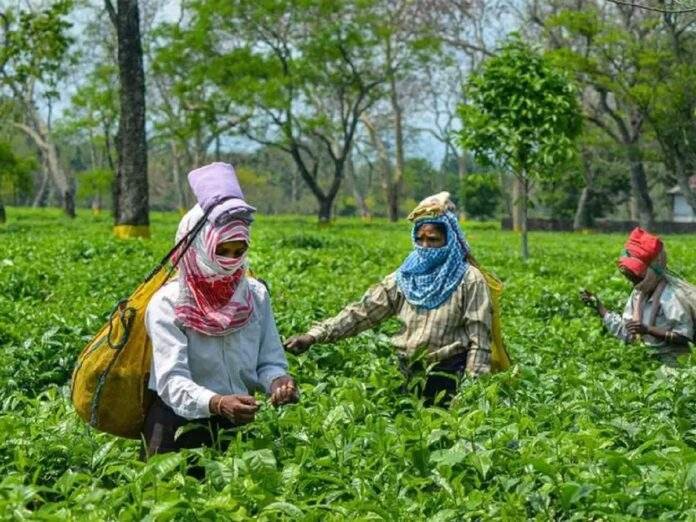Assam’s tea industry, one of the largest in the world, is facing a severe crisis as climate change-induced weather events cause a drastic reduction in production. The state has witnessed a loss of 100 million kilograms of tea in 2024 alone, impacting millions who rely on the sector for their livelihoods.
Climate Change Devastates Assam’s Tea Production
Tea production in Assam has taken a significant hit due to erratic weather patterns, with heavy rainfall, floods, and unpredictable temperatures disrupting the cultivation process. The Tea Board of India reported that between January and July 2024, tea production across India decreased by over 13%, a drop of 85 million kilograms, compared to the same period last year. Assam, being the largest tea-producing region, bore the brunt of these losses.
The production crisis has rippled through the entire tea industry, from large tea estates to small-scale tea growers. With tea being a critical economic driver for Assam, supporting millions of workers and farmers, the losses are expected to intensify the financial strain on both groups. Small tea growers, in particular, have been disproportionately affected, with many struggling to cope with the reduced output and rising operational costs.
Tea Prices Surge Amid Supply Shortfall
As production declines, tea prices at auctions across Guwahati, Kolkata, and Siliguri have surged to record levels. In the last week of August 2024, the average price per kilogram of tea shot up to ₹260.90, a 36% increase compared to ₹192.05 per kilogram during the same period last year. While this price surge offers some relief to producers, it falls short of fully compensating for the dramatic production losses.
Prabir Bhattacharjee, Secretary General of the Tea Association of India, acknowledged the complex situation: “Prices have risen by 17 to 18%, but the current buoyancy in pricing may not be sufficient to offset the production loss we’ve seen so far this year.”
The August-to-October period is crucial for tea production in Assam, typically accounting for 45 to 50% of the annual yield. However, with unpredictable weather patterns still looming, there is widespread uncertainty about whether the industry can recover during this critical window. Farmers and tea estate owners are anxiously monitoring the situation, hoping for improved conditions in the final quarter of the year.
Government Urged to Act Swiftly to Protect Livelihoods
Industry experts and political leaders have called for urgent intervention by the Assam government to protect the livelihoods of those dependent on tea production. Gaurav Gogoi, Member of Parliament, has raised concerns about the broader socio-economic impacts of climate change on Assam’s tea sector. He emphasized that both small growers and laborers are particularly vulnerable to climate-related disruptions.
“We cannot afford to wait any longer,” Gogoi stated. “The government must prioritize sustainable measures that will help our tea industry adapt to the rapidly changing climate conditions.”
Calls for Sustainable Solutions in Assam’s Tea Industry
Beyond addressing the immediate production losses, experts have highlighted the need for long-term strategies to bolster Assam’s tea industry against future climate shocks. Sustainable agricultural practices, improved water management, and technological innovations in tea farming are among the solutions proposed to mitigate the ongoing effects of climate change.
There are also calls for increased financial support for small tea growers, who often lack the resources to invest in climate-resilient practices. Experts warn that without adequate government support, the industry may face long-term decline, jeopardizing Assam’s position as a global leader in tea production.
Despite domestic challenges, Indian tea has maintained its popularity on the global market. Exports increased by 37% in the first four months of 2024, showcasing the continued international demand for Assam tea. However, the rising exports have done little to ease the domestic woes caused by climate-induced production disruptions.
Assam’s Tea Industry at a Crossroads
With the combined challenges of climate change, production shortfalls, and increasing pressure on tea workers and farmers, Assam’s tea industry finds itself at a critical juncture. Industry leaders are now looking to the government for decisive action that addresses both the short-term crisis and the long-term sustainability of tea production in the state.
As Assam’s tea farmers face an uncertain future, the focus is shifting toward adapting to the new climate reality. The state’s tea industry must embrace innovation, sustainability, and government-backed solutions to navigate the crisis and protect the livelihoods of millions who depend on it.
Also Read: Arunachal Tribal Body Demands Tough Measures to Combat Illegal Immigration Crisis












